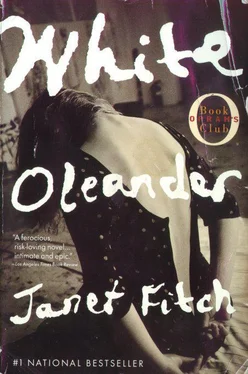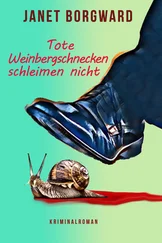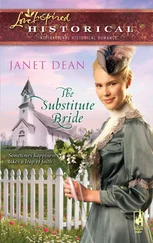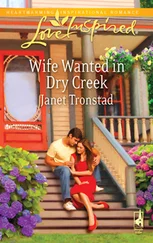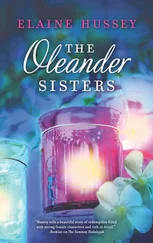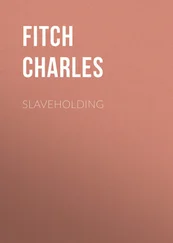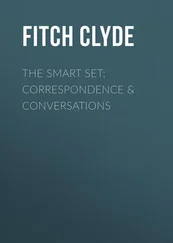Janet Fitch - White Oleander
Здесь есть возможность читать онлайн «Janet Fitch - White Oleander» весь текст электронной книги совершенно бесплатно (целиком полную версию без сокращений). В некоторых случаях можно слушать аудио, скачать через торрент в формате fb2 и присутствует краткое содержание. Жанр: Современная проза, на английском языке. Описание произведения, (предисловие) а так же отзывы посетителей доступны на портале библиотеки ЛибКат.
- Название:White Oleander
- Автор:
- Жанр:
- Год:неизвестен
- ISBN:нет данных
- Рейтинг книги:3 / 5. Голосов: 1
-
Избранное:Добавить в избранное
- Отзывы:
-
Ваша оценка:
- 60
- 1
- 2
- 3
- 4
- 5
White Oleander: краткое содержание, описание и аннотация
Предлагаем к чтению аннотацию, описание, краткое содержание или предисловие (зависит от того, что написал сам автор книги «White Oleander»). Если вы не нашли необходимую информацию о книге — напишите в комментариях, мы постараемся отыскать её.
White Oleander — читать онлайн бесплатно полную книгу (весь текст) целиком
Ниже представлен текст книги, разбитый по страницам. Система сохранения места последней прочитанной страницы, позволяет с удобством читать онлайн бесплатно книгу «White Oleander», без необходимости каждый раз заново искать на чём Вы остановились. Поставьте закладку, и сможете в любой момент перейти на страницу, на которой закончили чтение.
Интервал:
Закладка:
The smell of vanilla wafers saturated the night air, and the wind clicked through the palms like thoughts through my sleepless mind. Who am I? I am a girl you didn’t know, Mother. The silent girl in the back row of the schoolroom, drawing in notebooks. Remember how they didn’t know if I even spoke English when we came back to the States? They tested me to find out if I was retarded or deaf. But you never asked why. You never thought, maybe I should have left Astrid some words.
I thought of Yvonne in our room, asleep, thumb in mouth, wrapped around her baby like a top. “I can see her,” you said. You could never see her, Mother. Not if you stood in that room all night. You could only see her plucked eyebrows, her bad teeth, the books that she read with fainting women on the covers. You could never recognize the kindness in that girl, the depth of her needs, how desperately she wanted to belong, that’s why she was pregnant again. You could judge her as you judged everything else, inferior, but you could never see her. Things weren’t real to you. They were just raw material for you to reshape to tell a story you liked better. You could never just listen to a boy play guitar, you’d have to turn it into a poem, make it all about you.
I went back inside, spread all her letters out on Rena’s wobble-legged kitchen table, letters from Starr’s and from Marvel’s, letters from Amelia’s and Claire’s and these last bitter installments. There were enough to drown me forever. The ink of her writing was a fungus, a malignant spell on birch bark, a twisted rune. I picked up the scissors and began cutting, snapping the strings of her words, uncoupling her complicated train of thought car by car. She couldn’t stop me now. I refused to see through her eyes any longer.
Carefully, I chose words and phrases from the pile, laid them out on the gray-and-white linoleum tabletop and began to arrange them in lines. Gray dawn was straining peaches by the time I was done.
It sickens me to think of you
a prevalence of void
unholy
immovable
damned, gifts.
an overblown sense of his own importance.
I wish you were dead
forget about you.
crow
florid with
fantasies
it’s so awful
a perfect imitation
a liability to love
forget you
Ingrid Magnussen
quite alone
masturbating
rot
disappointment
grotesque
Your arms cradle
poisons
garbage
grenades
Loneliness
long-distance cries
forever
never
response.
take everything
feel me?
the human condition
Stop
plotting murder
penitence
Cultivate it
you
forbid
appeal
rage
impotent
it’s too
important
I
cringe
fuck
you
insane
person
dissonant and querulous
my
gas tanks marked FULL
I glued them to sheets of paper. I give them back to you. Your own little slaves. Oh my God, they’re in revolt. It’s Spartacus, Rome is burning. Now sack it, Mother. Take what you can before it all burns to ash.
27
THE CRYSTALLINE DAYS of March, that rarest of seasons, came like a benediction, regal and scented with cedar and pine. Needle-cold winds rinsed every impurity from the air, so clear you could see the mountain ranges all the way to Riverside, crisp and denned as a paint-by-the-numbers kit, windclouds pluming off their powdered flanks like a PBS show about Everest. The news said snowline was down to four thousand feet. These were ultramarine days, trimmed in ermine, and the nights showed all their ten thousand stars, gleaming overhead like a proof, a calculus woven on the warp and weft of certain fundamental truths.
How clear it was without my mother behind my eyes. I was reborn, a Siamese twin who had finally been separated from its hated, cumbersome double. I woke early, expectant as a small child, to a world washed clean of my mother’s poisonous fog, her milky miasmas. This sparkling blue, this March, would be my metaphor, my insignia, like Mary’s robe, blue edged with ermine, midnight with diamonds. Who would I be now that I had taken myself back, to be Astrid Magnussen, finally, alone.
Dear Astrid,
Bravo! Though your letter as poetry leaves something to be desired, at least it indicates a spark, a capacity for fire which I never would have believed you possessed. But really, you cannot think you will cut yourself free of me so easily. Hive in you, in your bones, the delicate coils of your mind. I made you. I formed the thoughts you find, the moods you carry. Your blood whispers my name. Even in rebellion, you are mine.
You want my penitence, demand my shame! Why would you want me to be less than I am, so you could find it easier to dismiss me? I’d rather you think me grotesque, florid with fantasy.
I’m out of segregation, thank you for asking. Waiting for me on my restoration to Barneburg B was, among other missives, a letter from Harper’s. Oh the praise, a jail-house Plathl (Although I am no suicide, no baked poetess with my head among the potatoes.)
Do not give up on me so soon, Astrid. There are people who are interested in my case. I will not molder here like the Man in the Iron Mask. This is the millennium. Anything can happen. And if I had to be wrongly imprisoned to be noticed by Harper’s—well . . . you could almost say it was worth it.
And to think, when I was out, a good day was a handwritten rejection from Dog Breath Review.
They’re taking a long poem on bird themes—the prison crows, migratory geese, I even used the doves, remember them? On St. Andrew’s Place. Of course you do. You remember everything. You were afraid of the ruined dovecote, wouldn’t go out into the yard until I’d prodded among the clumps of ivy to scare off snakes.
You were always frightened of the wrong thing. I found the fact that the doves returned, though the chicken wire had long since given way to ivy, afar more troubling prospect.
You want to write me off? Try. Just realise when you’re cutting off the plank upon which you stand, which end of it is nailed to the ship.
I will survive, but will you? I have a following—I call them my children. Young pierced artists avid with admiration, they make their pilgrimage here from Fontana and Long Beach, Sonoma and San Bernardino, they come from as far away as Vancouver, B.C. And if I can say so, they are much more to my taste than trembling actresses with two-carat wedding bands. They claim a network of renegade feminists, lesbians, practitioners of Wicca and performance artists up and down the West Coast, a sort of Underground Goddess Train. They’re ready to help me any way that they can; they are willing to forgive me anything. Why aren’t you?
Your loving mother,
Masturbating Rot Crow
P.S. I have a surprise for you. I’ve just met with my new attorney, Susan D. Valeris. Recognise the name? Attorney for the feminine damned? The one in the black curls, red lips like those chattering windup teeth? She’s come to exploit my martyrdom. I don’t begrudge her. There’s more than enough for everyone.
I stood in the doorway, watching the clouds rise from the mountains. They would not let her out. She killed a man, he was only thirty-two. Why should it matter that she was a poet, a jail-house Plath? A man was dead because of her. He wasn’t perfect, he was selfish, a flawed person, so what. She would do it again, next time with even less reason. Look at what she did to Claire. I could not believe any attorney would consider representing her.
Читать дальшеИнтервал:
Закладка:
Похожие книги на «White Oleander»
Представляем Вашему вниманию похожие книги на «White Oleander» списком для выбора. Мы отобрали схожую по названию и смыслу литературу в надежде предоставить читателям больше вариантов отыскать новые, интересные, ещё непрочитанные произведения.
Обсуждение, отзывы о книге «White Oleander» и просто собственные мнения читателей. Оставьте ваши комментарии, напишите, что Вы думаете о произведении, его смысле или главных героях. Укажите что конкретно понравилось, а что нет, и почему Вы так считаете.
